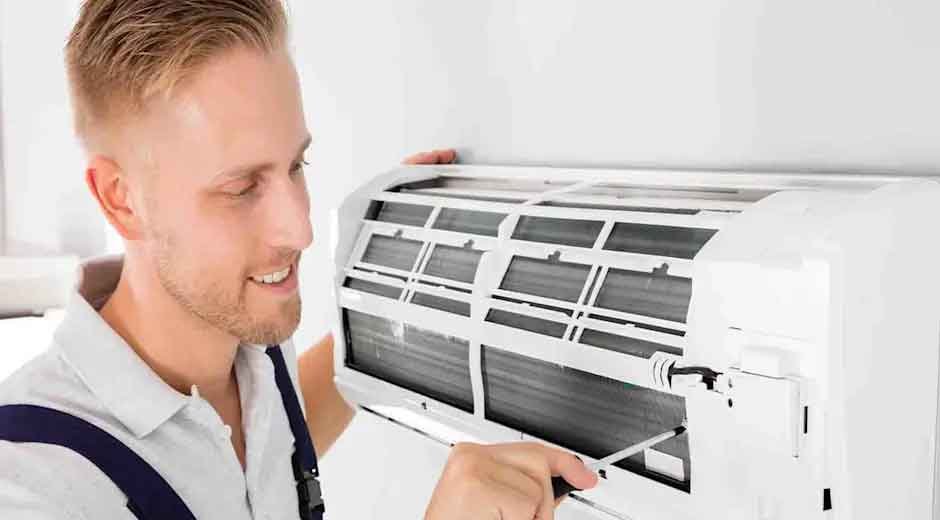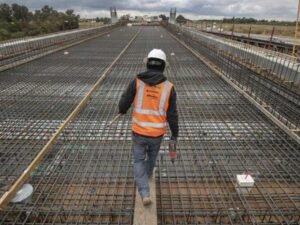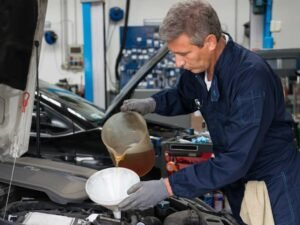If you live in Arizona, you already know just how brutal the heat can be. In the peak of summer, temperatures can regularly climb above 110 degrees Fahrenheit. That kind of heat doesn’t just make it uncomfortable to be outside; it can turn your home into an oven if your air conditioning isn’t working properly. And while it might be tempting to put off repairs due to cost or inconvenience, the truth is that delaying AC repairs can lead to much bigger issues, both for your wallet and your health.
This isn’t just about being hot. It’s about real consequences that come from ignoring small warning signs in your HVAC system. Let’s break down what’s really at stake when AC repairs get pushed to the back burner.
Rising Energy Bills
One of the first signs your AC needs attention is a sudden jump in your energy bills. When a system is struggling, say, because of a dirty filter, low refrigerant, or a failing compressor, it has to work a lot harder to cool your home. That extra strain translates directly into higher energy usage.
According to the U.S. Department of Energy, air conditioners use about 6% of all electricity produced in the U.S., costing homeowners roughly $29 billion annually. A system that’s not functioning efficiently can increase your monthly bill by as much as 20–30%. That’s money going straight out the window simply because the system is overdue for maintenance or repair.
Heat-Related Health Risks
There’s no sugar-coating it: extreme heat is dangerous. The CDC reports that more than 700 people die from heat-related illnesses in the U.S. each year. For young children, the elderly, and people with chronic illnesses, a non-working AC system during an Arizona summer isn’t just uncomfortable; it can be life-threatening.
Even a day or two without cooling during a heat wave can lead to heat exhaustion, dehydration, and even heat stroke. When your AC is on the fritz and temperatures are soaring, you’re gambling with your family’s safety by not getting it looked at right away.
Minor Issues Can Turn Into Major Repairs
Think of your AC system like a car. If you hear a weird noise under the hood and ignore it, you might be okay for a little while, but odds are it’ll get worse. The same goes for air conditioners. That small rattle or reduced airflow could be something simple, like a clogged filter or a loose part. But left alone, it can develop into a broken fan motor, a refrigerant leak, or even compressor failure.
Replacing a compressor can cost well over $1,000, while early intervention might have only required a $150 repair. The longer you wait, the more you risk turning a small fix into a major, costly headache.
Decreased System Lifespan
Every air conditioner has a lifespan, usually somewhere between 10 to 15 years. But how long it lasts depends a lot on how well it’s maintained. When repairs are delayed, the system runs under stress for longer periods, increasing wear and tear on essential components.
According to Energy Star, regular maintenance can extend your AC system’s lifespan and ensure it performs efficiently throughout its years of operation. If repairs are continually ignored, you could find yourself needing a full replacement years earlier than expected.
Poor Indoor Air Quality
A faulty AC system doesn’t just affect the temperature in your home, it also impacts your indoor air quality. Leaks in ductwork, dirty coils, or a malfunctioning blower can all contribute to dusty, allergen-filled air being circulated through your space.
In Arizona, where dust and pollen are already a problem, this can make conditions worse for people with allergies or respiratory issues like asthma. Not only can this lead to more doctor visits, but it can also degrade the overall comfort and livability of your home.
Unexpected Breakdowns at the Worst Time
Let’s face it, AC units don’t typically break down during mild spring afternoons. They tend to give out on the hottest days of the year, when the system is under the most pressure and repair companies are at their busiest.
Delaying repairs puts you at a higher risk of emergency failures during these peak times. And when everyone else is also calling for help, it can take days to get a technician to your house. That means more time in the heat, more discomfort, and potentially higher costs for emergency service calls.
Lower Property Value
If you’re thinking of selling your home anytime soon, a malfunctioning or inefficient AC system can be a red flag for potential buyers. Home inspectors will spot the problems, and buyers may either ask for a reduction in price or walk away altogether.
A well-maintained HVAC system, on the other hand, can be a selling point. It signals that the home has been cared for, and it gives buyers peace of mind knowing they won’t have to sink thousands into repairs right after moving in.
Warranty Risks
Here’s a lesser-known fact: delaying repairs can void your warranty. Many manufacturers require regular maintenance and timely repairs to keep warranties valid. If your unit fails and the cause can be traced back to neglected service, you could be on the hook for the full cost of the repair or replacement, even if you’re technically still under warranty.
That fine print matters. Taking care of small issues as they arise is not just good for the system, it’s also important for protecting your investment.
Mold Growth and Water Damage
In a working AC system, moisture is collected from the air and drained properly. But when there’s a clog or mechanical issue, that moisture can back up into your system or leak into your walls and floors. That creates a perfect breeding ground for mold.
Mold remediation is expensive and disruptive. And the presence of mold can trigger serious health issues, especially for kids, seniors, or anyone with breathing problems. A simple AC fix today can prevent these much more expensive and invasive issues later.
Delaying AC repairs might seem like a way to save a few bucks in the short term, but it rarely works out that way. From soaring utility bills and shortened equipment life to health risks and expensive emergency repairs, the real cost of waiting is far higher than most people realize.
The best approach is to act quickly. If your system starts making strange noises, blowing warm air, or struggling to keep up with the heat, it’s time to call in a professional. You’ll save money, stay more comfortable, and protect your home and family from a lot of unnecessary stress.
Staying cool in Arizona isn’t optional. It’s essential. And keeping your AC system in good shape is the first step.










